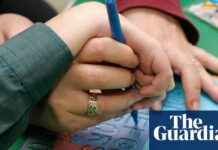Student learning is a crucial aspect of education that focuses on acquiring knowledge and skills to achieve specific goals. However, recent assessments of students’ academic achievements show minimal progress since the 1980s. Despite numerous school reforms aimed at improving education, there seems to be a disconnect in the approach to teaching and learning.
For example, in a fifth-grade science lesson on the gravitational force of Earth, students are often taught the basic concept without understanding its practical purpose. This lack of emphasis on the intended use of information leads to a shallow understanding of the subject matter. Students may resort to memorization rather than critical thinking and problem-solving.
The pedagogical approach to learning also plays a crucial role in students’ academic progress. By focusing on developing language skills and critical thinking, educators may overlook the importance of applying knowledge to achieve new goals. This can lead to a lack of motivation and engagement with academic content, ultimately hindering students’ overall learning experience.
Reading comprehension is another critical area where pedagogical approaches may fall short. While students are taught to construct meaning from text, the true purpose of reading as a form of interpersonal communication is often overlooked. Texts are not just conveyors of information but also mediums to evoke emotions, guide behavior, and provide insights into various topics.
To address these challenges, a more practically oriented pedagogy is needed in schools. This approach should focus on helping students understand the cultural heritage presented in the curriculum and how to benefit from it. By emphasizing the practical application of knowledge and skills, educators can better support students in their learning journey.
In conclusion, improving student learning requires a shift in the pedagogical approach to education. By emphasizing the practical purpose of information, fostering critical thinking and problem-solving skills, and promoting a deeper understanding of reading comprehension, educators can help students achieve greater academic success. It is essential to provide students with the tools they need to navigate the complexities of the modern education system and prepare them for future challenges.







